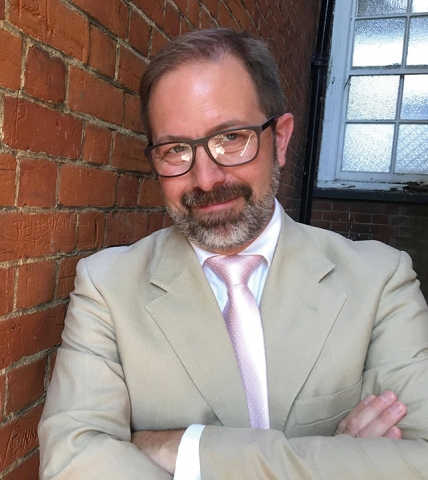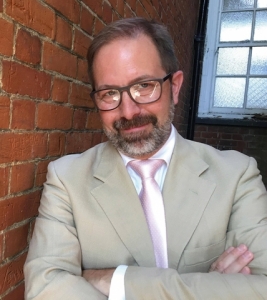Keir Giles: “I’ve No Doubt Putin Has Already Chosen a Successor, or Has a Shortlist”
Russia’s handling of Covid-19, the upcoming referendum on constitutional changes that would see Putin remain on the throne for the foreseeable future and the ever-present confrontation between the Kremlin and the proverbial West – we discussed all this and more while chatting with Chatham House’s Keir Giles in the second interview of the new GISP series, titled “Insights on Putin’s Russia.” Giles’ latest book, “Moscow Rules” is essential reading for anyone interested in how modern Russia and the Kremlin works.
How is Russia handling the pandemic compared to the rest of the world?
It’s hard to make a direct comparison, because in order to know what stage of the pandemic Russia is at and how it would cope with it, you would have to have more transparency as to what is actually happening there than is currently available. As such, it is inevitable that if low fatality figures are reported, this will lead to suspicions that Russia is concealing the numbers, or is perhaps hiding them among increased figures of death from pneumonia. It is inevitable when a country like Russia habitually deceives the world and its own citizens that even if they tell the truth about successfully managing the pandemic, they would be unlikely to be believed.
By not reporting COVID-19 cases, not providing adequate statistics, is it not also putting the rest of the world at risk?
There are some parallels between the criticism pointed at Russia and those pointed at China. It will have much less impact at this stage of the pandemic, when travel restrictions are already in place and national authorities elsewhere are far more alert to dangers of international travel, to the extent that if Russia has not fully recognized or admitted the scale of the challenge, it will be primarily an internal challenge to Russia itself.
Georgia and Ukraine have a different dilemma compared to others in the neighborhood. In Georgia, there is alarming data about rising corona cases in the occupied territories, which Russia seems to be turning a blind eye to.
If both Georgia and Ukraine wish to be seen taking responsibility for the population under occupation, they need to at least attempt to take steps to protect them during such a crisis; but the extent to which they are capable of doing so depends entirely on Russian cooperation.
What could the implications be of the predictable outcome of the upcoming constitutional changes referendum in Russia?
I think the question is more what it would not change. We will continue to hear from opponents of Putin, both in the West and in Russia itself, that the entire Russian system of government is doomed and will collapse; every year that it doesn’t happen, we hear new justifications for why it is still there, but in fact there is no reason to suspect that there are any serious threats to the current system of government. The potential threat of disruption and instability at the time of handover from Putin to a new leader has now been averted for the foreseeable future.
Will he get to choose a successor?
I have no doubt President Putin has already chosen a successor, or at least he has a shortlist; regardless of whom he has in mind for an eventual successor when he steps down from the leadership, he will ensure his own survival in case of a sudden event that might render him incapable of ruling. He would still wish to safeguard his health, his family, his legacy, his money;
In your book, you say “neither Putin nor other Russian officials understand the West: they think it functions like the Russian Federation with judiciary and media following instructions.” What's the basis of such a statement? Would it not be more logical to think they understand exactly what the west stands for & how to exploit it?
The two are not necessarily mutually exclusive; they are insights into western behavior which Russia can use to exploit western vulnerabilities at a tactical level; however, at the same time, Russian leaders have repeatedly demonstrated a failure to understand more strategic realities about the people they are treating as adversaries. One classic example is the the repeated attempts to find personal agreements between President Putin and senior Western politicians which founder on the realization that those Western politicians, because they operate in liberal democracies, cannot single-handedly implement the agreements that are reached with President Putin.
Russia earnestly believes that the Western talk of liberal values, democracy and ethics is in fact every bit as cynical as Russia's own attitude to guiding ideologies. Russia fails to appreciate that in some cases these are in fact deeply held beliefs which do drive western behavior.
You note that continuous confrontation with the West is something inevitable in the Russian mindset; that the West should come to terms with it. Is this confrontation instrumental for Russia’s survival?
It’s a question that concerned western observers for several years when the extent of Russian hostility was becoming clear: is it a generally held belief in Russia that the West is hostile to it and seeks to attack it, or was this simply manufactured in order to legitimize the leadership and find an extra enemy to distract the population from internal challenges? But the key point now is, whatever underlying factors, it is no longer relevant because what we see is Russia acting on these beliefs whether or not they were originally sincerely held or fabricated.
How much of this is brought about by Putin? Is he just spearheading an already existing national phenomenon and mechanism that does not know any other way of existence?
One of the beliefs held consistently by western liberals in the face of all evidence to the contrary is that President Putin is is an aberration in Russian history and, consequently, if he were to depart, relations with Russia would necessarily improve. This overlooks the fact that many of the things President Putin has said are not unique to him, but have been consistent throughout Russian history, which includes the 1990s when many in the West tried to convince themselves that Russia had friendly intentions and wished to join the international community. We should not expect that a transition from President Putin to another leader would necessarily bring about improvement in Russia’s attitude towards the West or to its own population; in fact, quite the reverse would be possible.
What do you see this confrontation evolving into over the coming years?
There’s a fundamental contradiction between Russia’s and the West's view of the future of Europe which it is not going to be possible to resolve through policy changes or reset initiatives with Russia coming from the West. At some point that contradiction has to come to a head, and the most likely facet of it to cause the next crisis is once again the different views between the two sides on the nature of sovereignty; on whether the frontline states should be entitled to determine their own foreign and security policy because they are independent and sovereign, as the West believes. This will lead to more crises within Europe unless there is a recognition at an early stage of the extent to which the two views are incompatible, and consequently a move to manage that incompatibility as opposed to attempting to resolve it.
What kind of management are we talking about? Could it include the West consigning and accepting the Russian perspective?
Acceptance on one level is essential; this is the acceptance that two sides cannot agree and will not agree on this subject. What it should not mean is the acceptance of Russia’s view of frontline states, because that goes to the core of western values and the notion that these are in fact independent and free countries. If we erode that fundamental principle, there’s no point in continuing to confront Russia because we have embraced the Russian view that countries should be subservient vassals to larger neighbors.
Do you think there’s much willingness in this Europe to unite behind the banner of that notion?
No, and in part this is because the nature of that challenge is so consistently misunderstood. This threat perception is shared by frontline states, but diminishes rapidly the further away from Russia; this is a fundamental challenge not just for supranational organizations like the EU and NATO, but also more broadly for the whole Euro-Atlantic community of shared values.
You wrote “Moscow demands the whole of somebody else's cake and then graciously settles for only half.” Looking at Georgian and Ukraine, is Russia running out of cakes and could it be coming back for the other half of the cake it has not already eaten?
Let’s not forget that Russia is no longer a country which will expand its dominion by military occupation for no evident reason other than pushing threats further away from itself - unless and until those threats become something that Russia finds intolerable. What that means is the situation across Russia's western periphery is stable. There is no reason to assume that Russia would willingly destabilize it, because the previous Russian military interventions we've seen have in each case come with the intent of stopping a situation getting rapidly worse. There was no way most western politicians and decision makers were in a position to understand the Russian view of Ukraine signing a trade agreement with the EU as being equivalent to handing the Black Sea Fleet based in Sevastopol to NATO; in the Western view, there is no connection, yet according to Russia security criteria it demanded action. And let’s not forget Russia’s response to the disastrous 2008 Bucharest Summit, which included Lavrov saying “we will never allow Georgia to become a member of NATO”. We should remember that sometimes when Russia says what they are going to do, they actually do it. Any country that does in fact share a border with Russia cannot be called a winner in the lottery of geopolitics, and they have had to adjust to that geopolitical reality.
By Vazha Tavberidze












